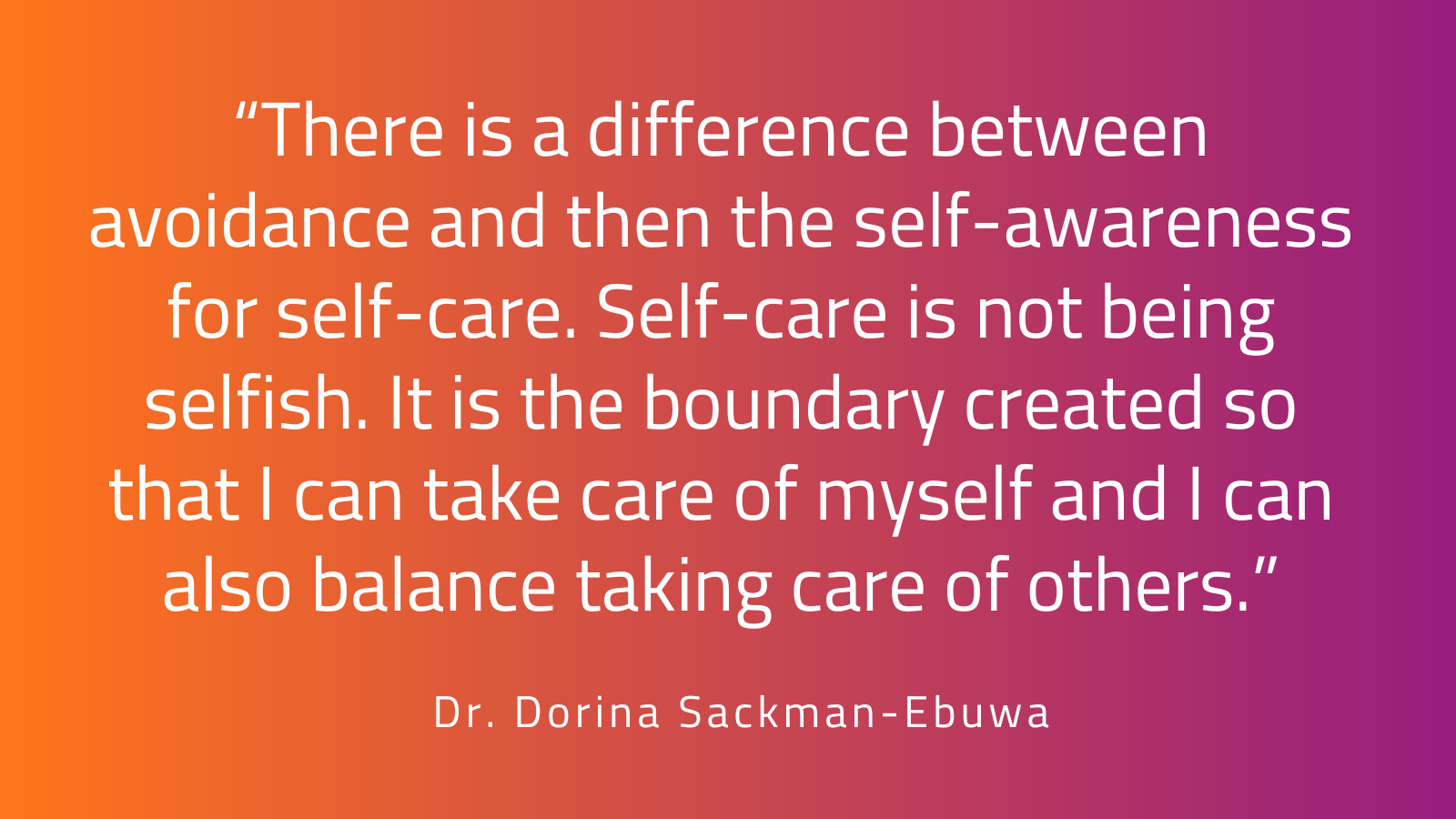Self-care for educators: A better approach
Teaching is an incredibly rewarding profession, especially when working with specialized student populations like Multilingual Learners. However, the demands placed on educators in such settings can lead to more than burnout if proper self-care is not prioritized.
We spoke with Dr. Dorina Sackman-Ebuwa, a Top 4 Finalist for National Teacher of the Year and Florida Teacher of the Year who is completing her doctoral research on Transformative Emotional Intelligence in the Teaching profession. Together, we explore the vital role of self-care for educators who work with Multilingual learners, highlighting ways to learn, navigate, understand, and build Emotional Intelligence for educators so we can refill our own cups in order to provide the best support for our ALL students.
Listen to the full episode here, and find a few highlights from the conversation below.
How has a misinterpretation of “self-care” led to burnout in the education field?
Self-care is a term that has been widely used in recent years, and with that increase in popularity comes commercialization, misinformation, and more. While it is commonly touted as important for educators, it is often over-simplified: instructions for teachers to “do something you enjoy over the weekend,” treating themselves to a manicure, even schools offering catered lunches or casual dress Fridays.
But these actions are not addressing the root of what is causing the burnout and exhaustion for educators, particularly those who work with Multilingual learners, dually identified students and other student populations that require much more academic and social interventions for equitable success. Dr. Dorina Sackman-Ebuwa says, “The way we are seeing self care in schools is as if self care is a bandaid on a wound that needs stitches.”

This issue is often tied to compassion fatigue, a term used to describe when professionals who serve others work with people, patients or students who are dealing with trauma or situations of extreme emotional stress. The professional feels truly empathetic and compassionate for what the person is experiencing, to the point where it consumes them and they become burnt out from taking on that vicarious suffering.This can lead to vicarious trauma, which is one of the main reasons why the acknowledgement of compassion fatigue is imperative in school systems.
Sackman-Ebuwa explains that under these conditions, those activities thought of as “self-care” such as a creative outlet cannot be sustainably beneficial because the stress and concern from work carries over into it. When we are trying to use these outlets as avoidance from feelings we haven’t dealt with, we cannot find relief in them, which means even our “rest time” is feeding the burnout cycle.
How can heightened emotional intelligence improve our ability to understand and manage our emotions, particularly when advocating for our MLLs?
Sackman-Ebuwa offers a solution: focusing on building emotional intelligence for educators, which means being able to think constructively and regulate and express emotions in healthy ways. This is a particularly important skill for those who serve others as a career, so they are able to create boundaries and advocate for themselves. However, it is not yet a practice being prioritized or taught for most educators.
While there are professional learning systems offered in social emotional learning and wellness, Sackman-Ebuwa contents that there is no ongoing professional learning for educators in learning, navigating, understanding their emotional intelligence as it pertains to teaching and learning.
“In the research that I have been doing, there is zero, zero emotional intelligence professional development for teachers in the United States. What I'm talking about is transformative emotional intelligence that helps you, in and out of the classroom, to help with burnout because I believe it's called burn-in, so you have to do it from within. It's the intrinsic motivation to want to do this.”
As a starting place, she suggests during a time when a teacher feels overwhelmed or emotionally triggered during the school day, using the sentence frame of:
"I am concerned about ________.because of ___________. However __________________. Some possible solutions are _____________".
“That starts this entire pattern of recognizing what's wrong, honoring your expertise, using “However” to end on a more positive thought then truly finding some solutions; giving that balance of finding that respite, the music, the golf, the manicure, the bath, and then you can actually do it without avoidance.”
What are some improvements or changes we can call for in the educational ecosystem to provide better, meaningful emotional support for educators?
Sackman-Ebuwa feels passionately about providing professionals with the skills and training to make this emotional intelligence and restorative self-care vision a reality.
She offers a number of changes that can move the needle:
- There should be a unit of pay in budgets for districts, for schools to have counselors for the teachers. This should be a non-negotiable in today’s post Covid teaching and learning environment.
- There should be 10 month self-paced professional development on self-awareness through transformative emotional intelligence and available for professional development points.
- Finally, accountability partners for check ins and vulnerable conversations throughout this process throughout this process not to “victim vent” rather “value vent” and use the sentence frames I am concerned about _________. Some possible solutions are ____________.
Learn more about Dr. Dorina Sackman-Ebuwa’s work at her website, and download the full episode transcript here.
